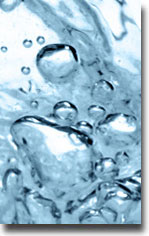 We spend a lot of time filling ourselves with food and drink, and relatively little time giving ourselves a well-deserved break. Not getting enough sleep and exercise, worry, and poor diet all effect our immune system and inhibit the body’s ability to rid itself of toxins. Even the medicines and supplements that we take for the treatment of disease can, in some instances, create a toxic build up.
We spend a lot of time filling ourselves with food and drink, and relatively little time giving ourselves a well-deserved break. Not getting enough sleep and exercise, worry, and poor diet all effect our immune system and inhibit the body’s ability to rid itself of toxins. Even the medicines and supplements that we take for the treatment of disease can, in some instances, create a toxic build up.
Detoxification, the process of eliminating or neutralizing toxins and excesses from the body, can help improve mental and physical functioning. By eliminating harmful contaminants, the mind and body are better able to heal and return to health.
Another good reason for detoxifying is in preparation for taking herbs or other supplements. Dietary supplements, herbs, food and even pharmaceuticals have a more profound effect after the body’s internal systems have been cleansed.
Detoxification can be a useful part of an integrative treatment plan for many mental health disorders. In order to determine what type of detoxification method is best, goals, lifestyle, and current state of health should all be considered. Whatever type of detoxification is used, it should be undertaken with strict and ongoing medical supervision.
There are a wide variety of detoxification therapies, from therapeutic fasting to intravenously administered drugs. Some detoxification methods are more intrusive and less natural than others. The length of time and degree of detoxification matters, too.
The major detoxification therapy categories are detoxification diets, vitamin detoxification therapy, colon therapy, chelation therapy, hyperthermia therapy, and fasting.